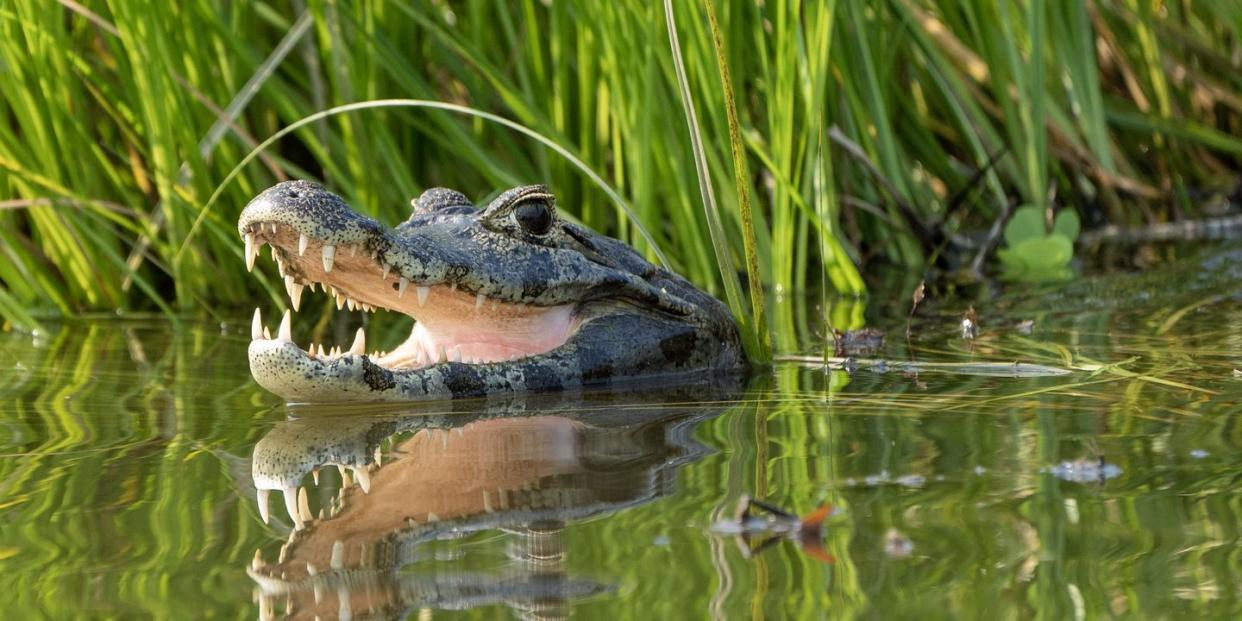Alligator Attacks Are On the Rise This Summer—And They're Happening Where You Least Expect Them

When you think about going head-to-head with an alligator, you probably envision a jungle adventure of Indiana Jones-like proportions. But for a couple in Louisiana, this scary confrontation happened in the one place they should feel the most comfortable. Don and Jan Schultz were fast asleep in their New Iberia home when their dog began to growl.
"[It] woke my wife up and she tapped me said I think there's someone in the house and so I got up headed down the hall to check," Don told KATC 3. When he turned on the lights, he was surprised to find that an had alligator entered their home through their pet door and was crawling around their floors.
While the Schultz family was able to call Wildlife and Fisheries officers to safely remove the reptile from their home, not everyone's alligator encounters have a happy ending. Earlier this week, a woman was attacked and killed by an alligator while walking her dog near Hilton Head, South Carolina. And a few weeks ago, a 13-year-old was attacked by an alligator while swimming in a creek in Florida—but survived.
While alligator attacks are terrifying, they're actually pretty rare. According to AZ Animals, an online animal encyclopedia, the United States generally reports an average of six fatal attacks per year. Still, with so much news, we can't help but wonder if alligator attacks are on the rise—and some signs are pointing to yes. Not to totally freak you out or anything, but there were four fatal attacks within a 76 day period last year—or one every 19 days. The steep rise in human-alligator tussles is partly due to rapid population growth in areas such as Hilton Head. It's not that alligators are getting more aggressive toward humans per se, it's that we're moving into alligator territory.
The good news is, you can take measure to stay safe even in areas that are home to alligators. The University of Florida recommends the following precautions: Exercise extra caution when you are around still bodies of water, where alligators tend to swim between dusk and dawn—they tend to be sluggish by day. You'll also want to avoid being in water past marked swimming hours. If you do spot an alligator, it's best to avoid it, which means no feeding and zero selfies. Alligators can cover short distances quickly, running up to 35 miles per hour, so if one starts crawling your way, it's best to run in a straight line to cover the most ground—not, as legend has it, in a zig zag pattern, which will just slow you down. Texas Parks and Wildlife notes that you should always keep pets on a leash while walking them near bodies of water that are home to alligators, and never throw food scraps in the water. And The Internet Center for Wildlife Damage Management, out of the University of Wisconsin, advises that if an alligator does attack you, it's best fight back, hit it on the nose poke it in the eyes until it releases you, as that savvy 13-year-old did.
We hope you'll never have to use these tips, but better safe than sorry!
You Might Also Like

